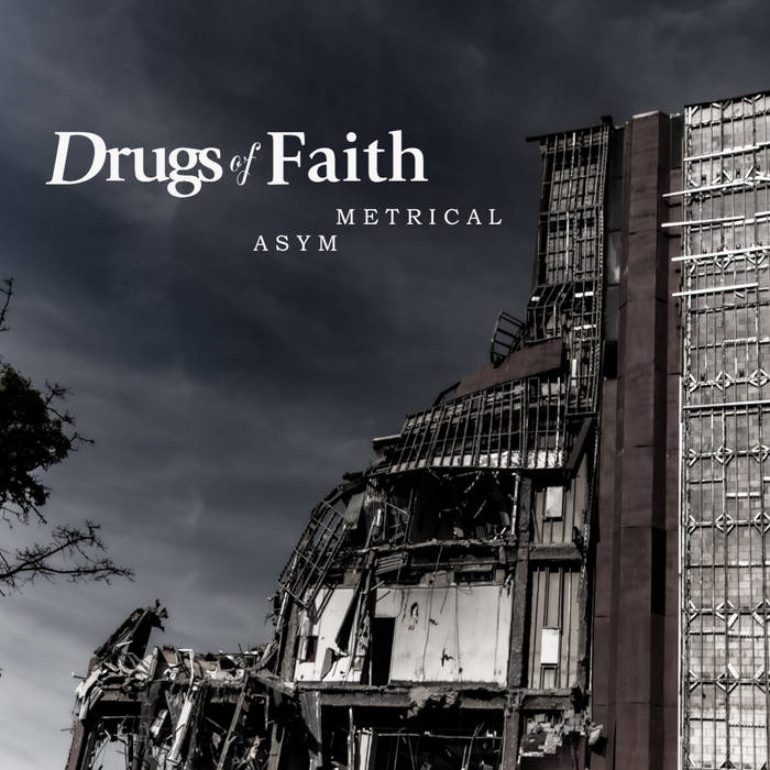

Asymmetrical is the latest release from the Virginia grind ‘n’ roll band, Drugs of Faith. As their fourth studio album, it is an anti-capitalist commentary knit together by fierce pessimism and critical outrage of the current times. Throughout its 10 songs, lead singer, Richard Johnson, delivers his poor predictions for the world’s future if it continues in a destructive capitalist cycle. With edgy guitar riffs and hostile lyrics, Asymmetrical is Drugs of Faith’s musical expedition captures the sounds of the world’s injustices while simultaneously confronting them.
Track two “Desert War Eternal” is a belligerent tune that cites the call to war as the source of its anger. Following the instrumental first track, titled “Opening,” which sets the sonic tone of the album, the lyrics of this second song set the direction of the album’s political message. In classic punk nature, the lyrics and music work together to present irritation at authority and the decisions the artist passionately believes are harmful as expressed in the line, “I never liked anyone I voted for.” In Johnson’s case, the executive order he disdains is a war expressed as a continual invasion of universal human rights. His abhorrence for violence is captured in the song’s rigid rhythm and rising guitar riffs reimagined in the later songs.
Track four “Microchip” is the band’s urge for revolution as Johnson incites listeners. “Come to account / Do what you can no matter the amount / Try to feel you can be / and live your life free.” With one of the catchiest guitar riffs of the collection, the song is as tense as it is fast-paced, creating a memorable melody for the advocacy the band attempts to evoke.
Track nine “Essential” is about the loss of meaning in our modern existence. As we become industrial-minded we lose our value for life’s accurate compass as Johnson declares, “The essence of life / Lost in reality.” What is the actual direction? Johnson does not explicitly state, only highlights the contradictory nature of truth that enters when we allow those in power to dictate our conscience. With shattered senses, truth is either right before us or falling away as the lyrics suggest, “So far, so fragile / so distant, so near.” It is a daunting message supported by a dramatic rhythm and a falling guitar riff in the song’s conclusion to signify the dismal reality Johnson believes we are living in.
Asymmetrical is strong in criticizing capitalism and surrendering to a crowd mentality. While it’s lyricism and melodies admirably work together to achieve its distribution of that message, a more straightforward solution to its complaints would help it better stand out. The album comprises all the right factors to set it up as a remarkable punk political commentary, such as singing over rumbling drum lines and vibrating electric guitar sequences. Still, it lacks a style element of its own. Identifying a new idea about the problems already familiar in the punk community would solidify its celebration.
